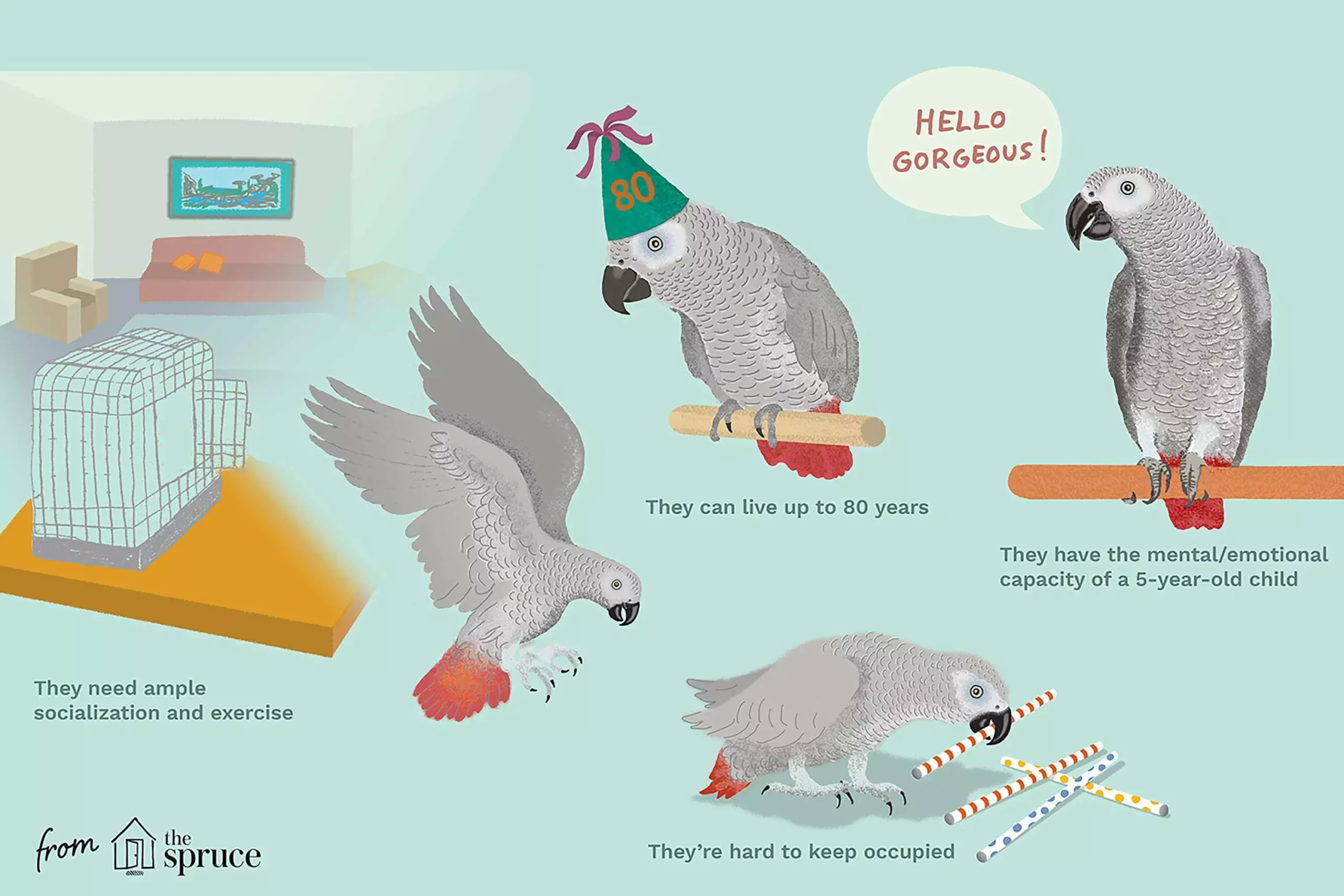African grey parrots have captivated bird enthusiasts and pet owners alike with their striking appearance and remarkable intelligence. Among the many avian species, they stand out not only for their physical characteristics but also for their sophisticated mental capacities. This article delves into the distinguishing features of African grey parrots, explores their intrinsic need for mental and emotional stimulation, and provides insights into responsible ownership.
While the allure of African grey parrots can be universally acknowledged, it is crucial to recognize the nuances between the two primary types: the Congo African grey and the Timneh African grey. The Congo African grey is the more populous variant, notable for its larger size, lighter gray plumage, and striking black beak. In contrast, the Timneh African grey, which gained recognition as a distinct species only in 2012, is slightly smaller and features darker feathers. One of the most distinguishing features of the Timneh is its unique horn-colored upper mandible, which sets it apart visually from its Congo counterpart.
Despite their physical differences, both types embody remarkable intelligence and charm, making them incredible companions for those willing to invest time and effort into their care. Owners must understand that while these birds may seem similar at first glance, they each have unique behaviors and personalities that can affect how they are integrated into a household.
The cognitive abilities of African grey parrots have been the subject of extensive research, with studies showing that these birds possess the intelligence comparable to that of a human child. One notable study by Dr. Irene Pepperberg involving her African grey parrot, Alex, brought to light not only the birds’ capacity to learn language but also their ability to use words in context to interact meaningfully with humans. This fascinating research highlights the complex thought processes these birds possess, cementing their status as one of the most intelligent avian species.
Most African grey parrots can learn and comprehensively use over a hundred words and phrases, allowing for an interactive and engaging experience between them and their owners. However, this intelligence also requires a commitment from the owner to provide an environment that fosters learning and communication. They thrive in settings where their abilities can be challenged and encouraged, leading to better behavioral outcomes and a happier pet.
What makes African grey parrots particularly unique is their ability to form profound emotional bonds with their owners. They are known for their social nature, which means they can become quite reliant on human interaction. As such, prospective owners should be aware that these birds are not suitable for everyone. They demand high levels of social engagement and frequently experience emotional distress if left alone for extended periods.
Moreover, these parrots require ample physical exercise daily. They need time outside their cages to play and explore within safe, designated areas, fostering both their physical and mental well-being. Without proper stimulation, they may develop behavioral issues that could lead to destructive habits, highlighting the necessity of a well-planned enrichment strategy.
One of the most significant considerations for prospective owners of African grey parrots is their long lifespan, often extending to 80 years in captivity. This longevity necessitates a long-term commitment that many may not initially consider. It’s crucial for potential adopters to reflect deeply on their capability to provide ongoing care, both physically and emotionally. Unfortunately, many African grey parrots find themselves in multiple homes due to hasty adoption decisions, leaving them emotionally scarred and unsettled.
To combat this, education is vital. Prospective owners should be informed about the needs, challenges, and responsibilities associated with African grey parrots. Raising awareness within communities can help ensure that these sensitive birds find stable and loving homes, where they can thrive for their entire lives.
To avoid boredom and subsequent behavioral issues, it’s imperative that African grey parrots are offered a variety of mental and physical stimulation. They require an array of engaging toys and social interactions to keep their minds active. Without this engagement, their frustration can lead to negative behaviors that necessitate seeking professional intervention, which could have been anticipated and prevented through proactive care and enrichment strategies.
African grey parrots are not only visually stunning but also possess profound intelligence and emotional depth, making them fascinating companions for dedicated bird enthusiasts. Their unique characteristics necessitate thoughtful considerations regarding care, socialization, and engagement. By understanding and addressing these needs, owners can foster fulfilling relationships with these remarkable birds, ensuring their happiness and well-being for a lifetime.

